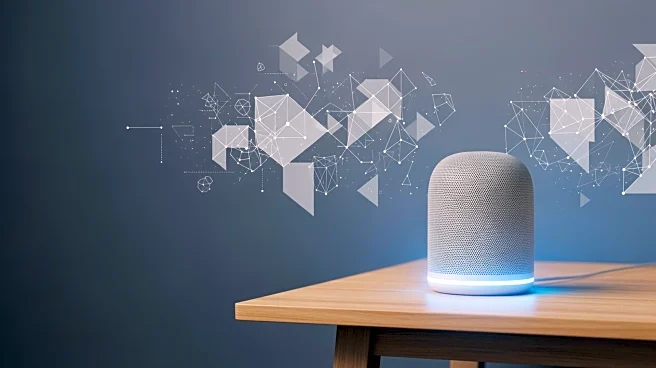What's Happening?
Ikea has announced a new collection of smart home devices that are compatible with the Matter standard, enhancing connectivity across different brands. The collection includes 21 new Matter-over-Thread
devices, such as smart bulbs, remotes, and sensors, which can connect with a wider range of platforms. Ikea's Dirigera hub has been updated to function as a Matter controller, allowing users to integrate devices from other companies using Ikea's Home Smart app. The new Kajplats line features 11 smart bulbs, including decorative and color-changing options, while the Bilresa remotes offer versatile control for various devices. Additionally, the Grillplats smart plug provides smart functionality and energy monitoring for lamps and appliances. The collection also includes sensors for motion, door/window, water, temperature, humidity, and air quality, expanding Ikea's smart home offerings.
Why It's Important?
The introduction of Matter-compatible devices by Ikea marks a significant step in the smart home industry, promoting interoperability and ease of use across different brands. This development is likely to benefit consumers by simplifying the integration of smart home systems, reducing the need for multiple apps and hubs. The move away from Zigbee to Matter-over-Thread reflects a broader industry trend towards standardization, which could lead to increased adoption of smart home technology. Ikea's expansion into smart sensors and plugs also highlights the growing demand for energy-efficient and connected home solutions, potentially driving innovation and competition in the market.
What's Next?
Ikea plans to roll out the new smart home collection in stores globally, with availability in the U.S. starting in January 2026 for remotes and sensors, and April 2026 for smart bulbs. As the Matter standard gains traction, other companies may follow suit, leading to a more cohesive smart home ecosystem. Consumers can expect further updates to Ikea's app and hub, enhancing functionality and user experience. The broader adoption of Matter-compatible devices could encourage more manufacturers to develop products that prioritize interoperability, potentially reshaping the smart home landscape.
Beyond the Headlines
The shift towards Matter compatibility raises questions about the future of existing smart home protocols like Zigbee. As companies transition to newer standards, consumers may face challenges in maintaining compatibility with older devices. Additionally, the focus on energy monitoring and air quality sensors reflects growing consumer awareness of environmental and health impacts, suggesting a potential increase in demand for sustainable and health-focused smart home solutions.











